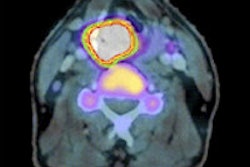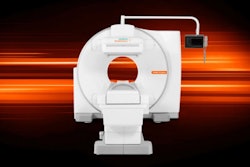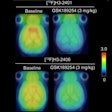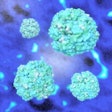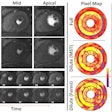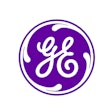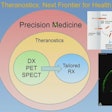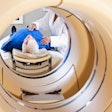PET imaging with F-18 fluorothymidine (FLT) can noninvasively and accurately provide tumor-specific details to guide the management of patients with gliomas, according to two studies in the December issue of the Journal of Nuclear Medicine.
Precise assessment of tumor grade and cell proliferation plays a major role in determining the most appropriate treatment and predicting overall survival in glioma patients.
In one study, researchers from Kagawa University in Japan, led by Dr. Yuka Yamamoto, retrospectively evaluated FLT uptake in 36 patients with newly diagnosed gliomas and 20 patients with recurrent gliomas. Patients underwent FLT-PET scans, and tissue specimens were acquired to obtain a pathological diagnosis and to compare the FLT-PET results with tumor grade and proliferative activity estimated from the tissue specimens.
The researchers found a significant difference in the tumor-to-normal ratio among different grades of newly diagnosed and recurrent gliomas. FLT uptake also correlated more strongly with the proliferative activity in newly diagnosed gliomas than in recurrent gliomas, and provided a more comprehensive view to determine tumor grade compared to a single tissue specimen.
The other study, led by Dr. Albert Idema from Radboud University Nijmegen Medical Centre in the Netherlands, investigated FLT-PET's value for estimating proliferative volume and overall survival in high-grade glioma patients.
In the study, 26 consecutive patients underwent preoperative FLT-PET/CT. Idema and colleagues calculated maximum standardized uptake value (SUVmax) and used three different PET segmentation methods to estimate tumor proliferation volume.
Mean overall survival for the patients in the study was 397 days; 19 patients died during this time. Based on this follow-up information, the researchers determined that the signal-to-background ratio for an adaptive threshold delineation method showed a significantly better association with overall survival than SUVmax or the other two PET segmentation methods.
"The predictive value of the proliferative volume for the overall survival of patients seems to be independent of the postoperative treatment," Idema said in a statement about the study. "The importance for patients is the possible utilization of [F-18 FLT-PET] to select the most appropriate treatment options."






